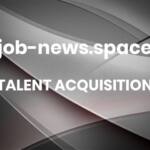We’re excited to learn about your story, Rodrigo! Can you start by sharing a little bit about your educational background?
I have a Bachelor’s in Computer Science from Georgia Tech. I had a bit of experience in programming before, but for all intents and purposes, I essentially started from scratch my freshman year of college. I have done online courses on sites such as Pluralsight, but I don’t have any certifications and would consider most of my education to come from school and on-the-job experience.
Related: Check out our partners who offer upskilling and certification opportunities.
Which educational opportunities have made the biggest impact on your tech career?
Definitely my formal education. It gave me a structured learning environment with lots of resources to advance my career. I also gained many non-technical soft skills, understood how to go about engaging potential employers, and learned the “how” and “why” behind common software engineering processes.
What would you like to learn more about?
I would like to learn more about hardware. I personally enjoy tinkering with small microcontrollers and bare-bones computers such as Raspberry Pis and Arduinos. I’m also currently enamored by the maker movement and am trying to expand my 3D modeling/printing skills, and eventually pick up some woodworking skills too.
What led you to pursue a career in tech?
I went to a programming summer camp in middle school. I learned to make video games through a drag-and-drop game engine and fell in love with it. I didn’t touch it much again until college, but that summer made me certain tech was what I wanted to study and pursue.
Related: What are the Best Programming Languages to Get a Software Developer Job?
How has your skillset evolved over the course of your career?
Initially, my skillset centered around a lot of theoretical knowledge and I had a focus on making “clever” code. Over time, I’ve learned that readable and easily changeable code is much more valuable. It’s easy to write new code but it’s hard to refactor and maintain it. I have also broadened my skillset with lots of Linux knowledge and that has been really valuable for debugging difficult production issues.
If you choose to specialize in one area, what was it and why?
I haven’t decided to specialize, but automation is a common theme in my job roles. I particularly like it because it’s often about scaling up an existing process and understanding how many different systems come together to solve a problem. Plus, it’s needed in almost all industries, so the diversity of problems keeps me engaged.
Is your new role different from previous ones?
I went from a large corporate financial firm, Goldman Sachs, to a small insurance tech startup called Owl.co. My title is roughly the same, but my current team/company feels much more focused. I enjoy that the work we do is directly related to the core business model, and I enjoy that the smaller size allows for more flexibility when coming up with solutions to engineering challenges.
What are some of the things you’re most excited about in your new role or company?
The opportunity to work within a smaller and more focused organization is a major aspect that excited me. Additionally, the prospect of being able to contribute to making an industry slightly less biased and more consumer-friendly is another plus. I had a goal in mind when seeking my next role. I wanted to work somewhere I could be proud of the product and the impact it had on people.
What was your job search experience like before you joined Hired?
It mainly consisted of LinkedIn recruiters reaching out to me and me applying on my own to companies I thought would be interesting. I had many traditional financial roles that recruiters reached out to me for. It was difficult to peel away from the perception that because I worked at a large financial firm, I was mainly interested in finance. I was actually more interested in working for places with an exciting product or interesting engineering problems. I wanted to turn away from finance to avoid being pigeonholed into a certain skill set or role.
Related: Build Confidence and Take Control of Your Tech Job Search Series
What’s your best advice for job seekers registered on the Hired platform?
Contrary to the “spray and pray” approach on other platforms such as LinkedIn, it makes more sense to focus on roles that actually seem interesting. I noticed that companies reaching out on Hired actually had a substantial interest already. So, it was less about casting a wide net to identify leads, and more about deciding if I could actually see myself working at the companies that contacted me. Also, being really responsive on the platform was key. I felt more eager to proceed with interviews when a company reached out on Hired as opposed to another platform.
What would you tell someone who’s curious about Hired?
Try it out! There’s no cost and creating a profile is really easy so you have nothing to lose. I had a really positive experience with companies and with Hired employees as they assisted me through my job search. Also, know that you can conveniently pause your profile if you find yourself with many ongoing interviews.
Any general advice you’d like to give other tech professionals?
Don’t be discouraged by many rejections. The technical interview is not a good measure of how good of an engineer you may be. It is simply a tool used during the recruiting process. Focus more on finding the right company for what you are looking for and you may be surprised at what you find in places you weren’t originally looking.
Related: Get more practice with technical interviews through events like coding challenges.
About Owl.co
Owl.co is an enterprise software company leading a change in how insurers verify the legitimacy of claims by replacing a bias-prone and labor-intensive process with a data-driven one. Founded in 2018, Owl.co has between 51-200 employees and is headquartered in Vancouver.
Tech Stack
TypeScript, Clojure, Python, TensorFlow, AWS
Benefits
Health/dental/vision/life/disability insurance, performance bonus, 401K matching, paid time off, mentorship opportunities, flexible working hours, and more.



